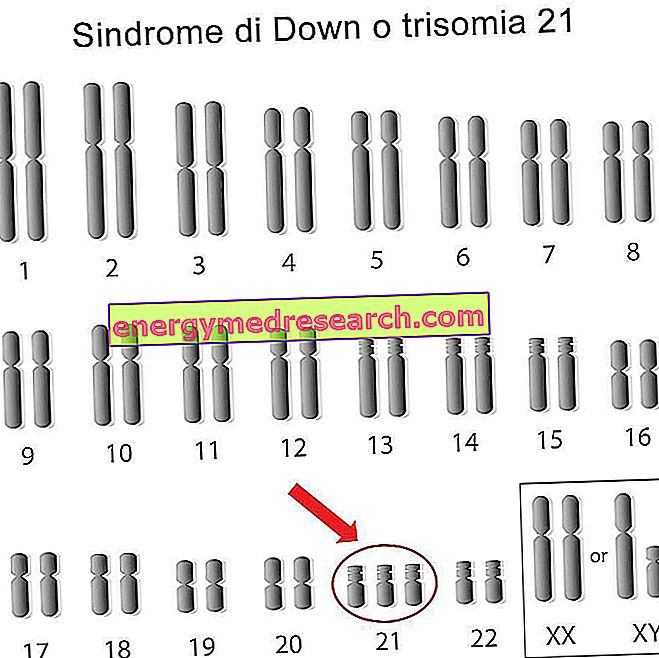
Aneuploidy is a chromosomal anomaly, characterized by a variation in the normal number of chromosomes present within a cell of a given species.
As far as the human being is concerned, a subject having more or fewer chromosomes than the normal number which is 46 is considered aneuploid .
Aneuploidy can affect autosomal chromosomes or sex chromosomes and can sometimes cause serious consequences. One of the best known aneuploidies is Down syndrome (or trisomy 21 ), which is characterized by the presence of another autosomal chromosome 21 in addition to the two canons.



